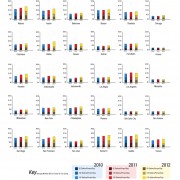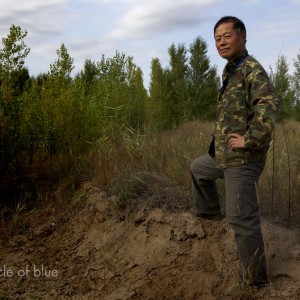Senate Committee Continues to Discuss Sandy, Climate Change and Infrastructure
Sandy has brought new urgency to a water resources bill.
Two weeks after talking at length about how to respond to the damage caused by Superstorm Sandy, the Senate committee in charge of flood control and water resources returned to the topic yesterday, this time inviting Congressional colleagues to testify about the storm’s effects in their home states or districts.
A bipartisan roster of senators and representatives from Connecticut, Delaware, Maryland, New Jersey, New York, and Rhode Island told stories of constituent woe and perseverance, while demanding that the country help them recover from the storm, whose damage estimates have jumped to nearly $US 80 billion.
“We can’t rebuild the way it was built before — that’s just a waste of money. We’ve got to prevent the damage in the future,” said Environment and Public Works committee chair Barbara Boxer (D-California).
Boxer, who has added a new section to the Water Resources Development Act on reducing the risk from extreme weather, said Sandy shows why it is important that the legislation moves forward in the waning days of the 112th Congress.
Several members of Congress described restoration projects that protected parts of their coast. Tom Carper (D-Delaware) said that natural systems such as dunes and wide beaches saved his state hundreds of millions of dollars in damages.
“Natural protection, like these beaches, can withstand storm surge and waves better than dikes or seawalls while also enhancing our environment,” he said, also suggesting that officials look into other buffers such as wetlands, oyster beds, and sea grass.
Similarly, Ben Cardin (D-Maryland) lauded the dune restoration and beach expansion at Assateague Island, which protected the resort town of Ocean City. “It worked, madam chairman. Assateague Island worked!” exclaimed Cardin, who introduced legislation in October 2011 to provide federal grants to help communities adapt their water and sewer infrastructure to a changing climate.
“[Beach restoration] prevented a lot more damage than would otherwise have occurred,” Cardin continued. “I know it’s an investment and sometimes people wonder why we make those investments, but we make those investments to save lives and property. And it did work. So I’m going to be coming back to my colleagues and telling you that we need to invest in those common sense ways that we can deal with the realities of severe weather.”
New Jersey Democrat Frank Lautenberg listed four vulnerable areas for his state — flood control, water infrastructure, transportation systems, and Superfund sites, at least two of which were damaged by Sandy and might have resulted in toxic spills.
Lautenberg said he has written a letter to the U.S. Environmental Protection Agency requesting an investigation of the storm’s effect on Superfund sites in the region. This week he introduced legislation that would make such assessments mandatory following a natural disaster.
Like his fellow witnesses, Lautenberg said a silver lining to the storm was the performance of dune restoration and beach widening projects. “Up and down our Jersey coast,” he said, showing examples from Long Beach Island, “we saw that homes behind dunes built up by the Army Corps were still standing after the storm, even when nearby homes without these projects were totally destroyed.”
The hearing was a rare jewel for this Congress. The members in the committee chamber expressed a near unanimity of purpose, that the region’s vital systems must be made stronger and more resilient. If we can’t get this done, Boxer said, “shame on us. Certain things are way above politics, and this superstorm is one of them.”
Brett writes about agriculture, energy, infrastructure, and the politics and economics of water in the United States. He also writes the Federal Water Tap, Circle of Blue’s weekly digest of U.S. government water news. He is the winner of two Society of Environmental Journalists reporting awards, one of the top honors in American environmental journalism: first place for explanatory reporting for a series on septic system pollution in the United States(2016) and third place for beat reporting in a small market (2014). He received the Sierra Club’s Distinguished Service Award in 2018. Brett lives in Seattle, where he hikes the mountains and bakes pies. Contact Brett Walton







Leave a Reply
Want to join the discussion?Feel free to contribute!